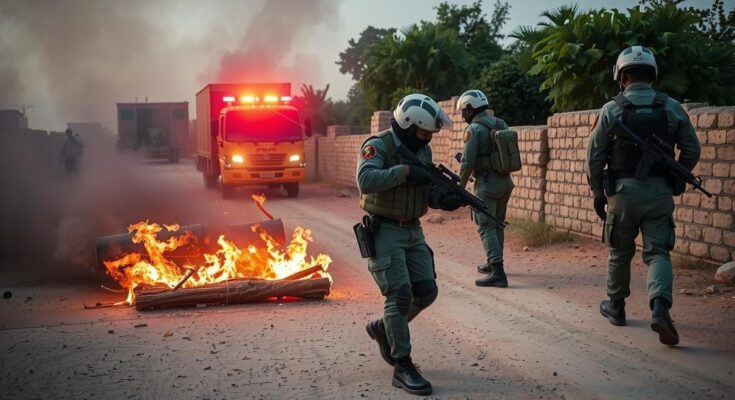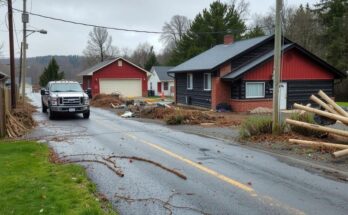Thirty-nine individuals were killed in two attacks in western Niger near the Burkina Faso border, with significant casualties reported in Libiri and Kokorou. The Nigerien defense ministry condemned the attacks, attributed to jihadist groups actively operating in the region, which has seen escalating violence despite military operations. The junta has responded by suspending BBC radio, highlighting ongoing tensions with international media amid increasing security challenges.
In a tragic series of events, thirty-nine individuals, including children, have been slain in two separate attacks in western Niger, close to the Burkina Faso border. These assaults occurred in the communities of Libiri and Kokorou, areas noted for significant jihadist activity. The Nigerien defense ministry reported that 21 victims were killed in Libiri and 18 in Kokorou between December 12 and 14. The ministry condemned these attacks as “barbaric acts targeted at defenseless civilian populations, carried out by criminals cornered by constant operations by defense and security forces,” indicating the increasing danger posed by extremist groups in the area.
The Tera region, where these incidents unfolded, lies at the intersection of Niger, Mali, and Burkina Faso and has become a stronghold for jihadist factions affiliated with the Islamic State and Al-Qaeda. This region has experienced a relentless insurgency that has fostered a climate of continuous peril. Earlier in December, gunmen attacked a goods convoy, resulting in 21 civilian casualties, followed by a deadly raid on December 11 in Chatoumane, where reports indicated the loss of over 90 soldiers and 40 civilians’ lives. However, officials from Niger’s military junta have dismissed these figures as “baseless assertions” and accused international media of disseminating misinformation.
In response to rising violence, the Nigerien government has suspended BBC radio for three months, a part of an escalating trend of sanctions against Western media since the junta took control in July 2023. Despite vigorous military efforts to counteract jihadist threats, the region persists in facing significant challenges, including porous borders and rugged terrain that allow militants to operate with impunity. Consequently, the Nigerien government is urging for enhanced security measures and international assistance to combat the increasing dangers along its borders. The violence has also precipitated a humanitarian crisis, displacing thousands of civilians and heightening their vulnerability in an already unstable environment.
This article addresses the enduring conflict in western Niger, particularly in the Tera region, which serves as a battleground for jihadist forces linked to the Islamic State and Al-Qaeda. These groups have been involved in a protracted insurgency that has afflicted the region due to its strategic positioning near the borders of Niger, Mali, and Burkina Faso. The cycle of violence has intensified, resulting in growing casualties among both military personnel and civilians, transforming local communities into sites of incessant turmoil. The governmental response has included media repression and a call for international collaboration in addressing the crisis.
The recent attacks in western Niger exemplify the relentless jihadist violence that plagues the region, resulting in significant loss of life and a growing humanitarian crisis. The Nigerien government continues to grapple with these challenges amid accusations and misinformation spread by various media entities. Urging for enhanced security measures and international cooperation, the government aims to stabilize the area and protect its citizens from further atrocities. The plight of thousands displaced by the violence underscores the dire humanitarian needs in this volatile borderland.
Original Source: dailypost.ng




